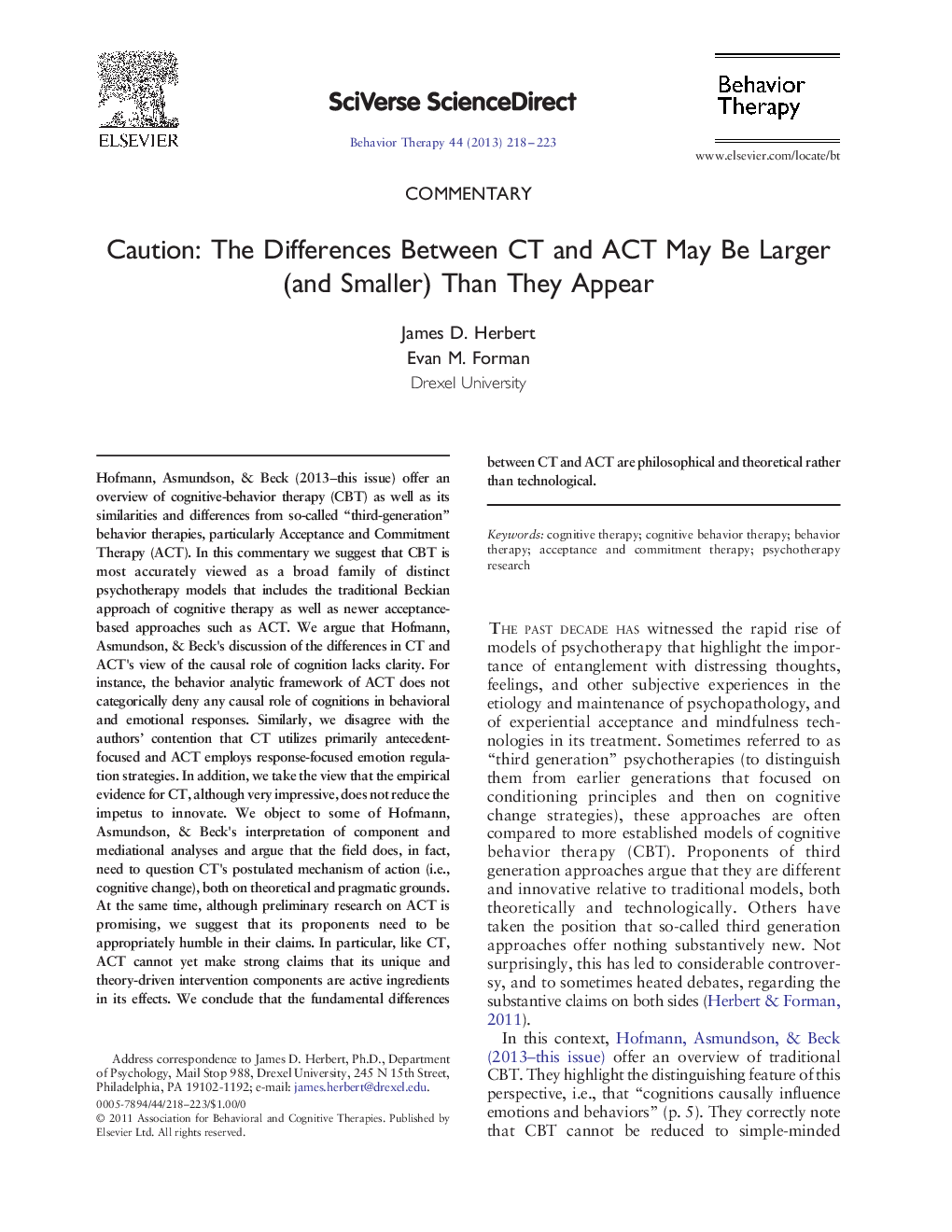| Article ID | Journal | Published Year | Pages | File Type |
|---|---|---|---|---|
| 901300 | Behavior Therapy | 2013 | 6 Pages |
Hofmann, Asmundson, & Beck (2013--this issue) offer an overview of cognitive-behavior therapy (CBT) as well as its similarities and differences from so-called “third-generation” behavior therapies, particularly Acceptance and Commitment Therapy (ACT). In this commentary we suggest that CBT is most accurately viewed as a broad family of distinct psychotherapy models that includes the traditional Beckian approach of cognitive therapy as well as newer acceptance-based approaches such as ACT. We argue that Hofmann, Asmundson, & Beck's discussion of the differences in CT and ACT's view of the causal role of cognition lacks clarity. For instance, the behavior analytic framework of ACT does not categorically deny any causal role of cognitions in behavioral and emotional responses. Similarly, we disagree with the authors’ contention that CT utilizes primarily antecedent-focused and ACT employs response-focused emotion regulation strategies. In addition, we take the view that the empirical evidence for CT, although very impressive, does not reduce the impetus to innovate. We object to some of Hofmann, Asmundson, & Beck's interpretation of component and mediational analyses and argue that the field does, in fact, need to question CT's postulated mechanism of action (i.e., cognitive change), both on theoretical and pragmatic grounds. At the same time, although preliminary research on ACT is promising, we suggest that its proponents need to be appropriately humble in their claims. In particular, like CT, ACT cannot yet make strong claims that its unique and theory-driven intervention components are active ingredients in its effects. We conclude that the fundamental differences between CT and ACT are philosophical and theoretical rather than technological.
► CBT is best viewed as a broad family of psychotherapy models, including both CT and ACT. ► ACT theory does not preclude all notions of cognitive causation. ► Despite recent progress, mechanisms underlying both CT and ACT remain unclear. ► CT and ACT share many features, but also have important distinctions. ► The fundamental differences between CT and ACT are philosophical and theoretical.
